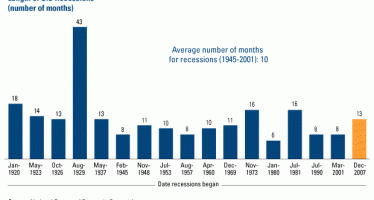Drought Wars: Dueling bills seek to balance fish and farmers
The sprinkles some areas of California have enjoyed the last couple of days have done almost nothing to alleviate the state’s severe drought. So the Drought Wars between Democrats and Republicans have continued.
In several recent articles CalWatchdog.com has covered H.R. 3964, by Rep. Devin Nunes, R-Tulare, which would help relieve the drought by diverting to farmers water currently going to environmental concerns. It would modify H.R. 149, which was sponsored by Sen. Dianne Feinstein, D-Calif., and became law in 2009.
On January 29, 2014, Feinstein rejected Nunes’ bill in a statement:
“Today’s bill is another irresponsible proposal that puts politics ahead of the needs of California, and candidly, it’s very disappointing. The bill is nothing more than a recycled version of legislation from 2011, and it is profoundly dangerous for California.
“The bill undermines state law related to Bay Delta restoration and endangered species. It overrides the court-approved San Joaquin River Settlement Agreement, which all parties involved still agree with. And it ends any possibility of a balanced solution to restore the Bay Delta.”
However, Feinstein tacitly acknowledged that something new must be done when she announced plans to introduce her own drought relief bill. In the Orange County Register on Feb. 3, Cathy Taylor reported:
“Sen. Dianne Feinstein, D-Calif., also plans to introduce a bill, as early as this week, that would address California drought conditions. Feinstein was sharply critical of a bill introduced last week by House Republicans that allowed more water to flow into the Central Valley from the Bay Delta, which would adversely affect efforts to protect the Delta smelt, a protected species. The House bill is expected to be voted on this week.”
State action
State politicians also are acting. California Senate President pro Tem Darrell Steinberg, D-Sacramento, has proposed Senate Bill 731. It would make changes to the California Environmental Quality Act for drought relief. However, the Legislature will have to discuss why SB731 is necessary when Gov. Jerry Brown already has suspended CEQA due to the drought emergency.
And Brown’s Secretary of Natural Resources, John Laird, has issued an official letter of opposition to Nunes’ new bill — even though the bill would do at the federal level what Brown’s suspension of CEQA has done at the state level.
Republican position
According to Nunes, the current San Joaquin River court settlement of 2006, and Sen. Feinstein’s H.R. 149 which responded to the settlement in 2009, have brought about a situation that worsens the drought, including:
- Increased releases of water to restore salmon runs in the San Joaquin Rivers have been allowed to flow to the ocean in the midst of a drought.
- Because of the abnormal skipping of the winter rain and snowpack cycle thus far in 2014, there still isn’t enough water to be released to maintain salmon runs anyway.
- Farmers have been assessed $180 million in increased water rates up to 2014 to pay for river restoration for fish that, with the onset of the drought, has subsidized their own ruination.
- The court order and H.R. 149, in the summary from Nunes’ office, “unduly limit(s) water transfers between agricultural water contractors within the Central Valley Project.”
- The tiered water-pricing scheme of the Central Valley Improvement Act penalizes those who buy more water to store underground for droughts, thus thwarting water conservation and drought planning.
- Striped bass fish, a predator to salmon, have been defined as native species worthy “of the full benefit of restoration.”
Balance?
Feinstein maintains that Nunes’ new bill is “nothing more than a recycled version of legislation from 2011” that was “profoundly dangerous for California.” Nunes’ prior legislation was the San Joaquin River Water Reliability Act of 2012, H.R. 1837. The bill passed the Republican-controlled House but was held in the Democratic-controlled U.S. Senate without any action. Both H.R. 1837 (old bill) and H.R. 3964 (new bill) call for the repeal of Feinstein’s San Joaquin River Restoration Act of 2009.
Nunes’ new water bill has a number of provisions that would add flexibility to river restoration policy to bring about a balance between farmers and fish. It would:
- Revive the landmark Bay-Delta Accords of 1994 that Feinstein claims Nunes’ bill would breach.
- Prioritize native species (salmon) over non-native species (striped bass) in the Delta and San Joaquin Rivers.
- Expand incentives to expand local groundwater storage by reforming the tiered pricing system that penalizes water districts for buying more water land banking it.
- Allow greater flexibility for timely water transfers, especially in drought years. To do this, Nunes’ bill would prevent mandating environmental mitigation on the proposed transfer if it was a dry year and there wouldn’t be enough water to flush salmon to the ocean. Also, historic water transfers that occurred before the Central Valley Project Improvement Act would be grandfathered.
- Set a cap of 800,000 acre-feet of what is called “Refuge water” for fish, wildlife and habitat restoration. Nunes claims the actual allocation of Refuge Water has averaged 1.2 million acre-feet per year. Additionally, his bill would allow a 25 percent reduction if the 800,000 acre-feet of agricultural water allocations fall below 75 percent in any one year.
- Most importantly, it would mandate the replacement of the 800,000 acre-feet of water the farmers lost.
- More controversially, it would “stop the billion dollar salmon restoration program known as the San Joaquin River Settlement.” Nonetheless, Nunes bill would re-wet the dry reach of the San Joaquin River for salmon runs, except in critical dry years.
- Add a key feature of downstream recovery of lost farm water for fish restoration.
Feinstein bill
By contrast, Feinstein’s existing San Joaquin River law allows only one-way diversions of water to the environment. Nunes’ proposal would allow water to flow more flexibly from fish to farmers and back to fish, while setting a maximum level of water flows for fish.
But Feinstein maintains that last week she told Nunes and fellow California representatives Kevin McCarthy and David Valadao:
“I was interested in working with them to develop a serious proposal that would address the problem and could pass Congress. I agreed with their idea for a joint Senate-House committee to address supply issues and offered to bring new ideas to the table. But instead of working productively for solutions, Valley Republicans tossed aside their own new ideas and returned to the broken ideas they have championed for nearly three years.”
Obama veto
Two years ago, President Obama promised to veto any bill to provide water to California’s Central Valley. But that was before the drought worsened; before his own popularity plunged; and before his fellow Democrats were struggling to keep House seats from California in 2014 mid-term elections.
His State of the Union address last week failed to specifically address the drought. And Obama has come under special criticism by state Sen. Jean Fuller, R-Bakersfield, for not responding to a letter from elected Republican leaders about the drought. Obama called Gov. Jerry Brown to answer Republican critics that he was unresponsive to the California drought.
Both sides in the contentious drought war in California are claiming the other’s law or proposed new law is imbalanced.
If the drought persists, elected leaders on both sides of the river will only have so long before the public demands real balancing of not just words, but water, between fish and farmers.
Related Articles
High-speed rail workshops will review environmental concerns
The High-Speed Rail Authority has restarted an aggressive plan to finish the environmental work on the San Francisco to San
At Last, California Ties Texas
Wayne Lusvardi: It seems that, since 2006 when the University of Texas Longhorns football team beat USC in the Rose
LAO: Possible 2016 recession would devour budget surplus
There is good news and bad news in the impartial California Legislative Analyst’s recent release of its “2014-2015 Budget:




